The function of fans inside a PC is to control the temperature of internal components, like CPU, GPU, etc. They help maintain the components’ temperature and the temperature of the PC case. When the pressure goes high, the speed of the fans also increases. The fans automatically slow down when the temperature falls. If your PC fan randomly speeds up, slows down or stops, this post will help you troubleshoot and fix the issue.
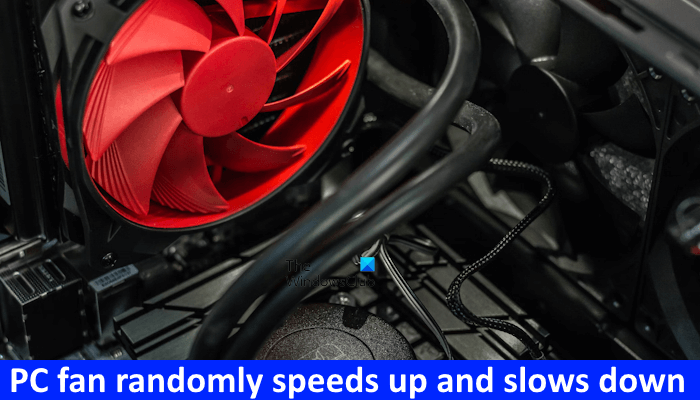
PC fan randomly speeds up and slows down or stops
If your PC fan randomly speeds up and slows down or stops, the following suggestions will help you. Before you proceed, we would like to tell you that an increase in the fan speed is a normal operation in computers. Computers increase the speed of fans when the temperature of the CPU, GPU, or the computer case goes high. However, it does not happen frequently. If in your case, this issue occurs frequently, you can use the following suggestions.
- Monitor your CPU and GPU temperature
- Clean your PC
- Monitor your CPU and disk usage
- Are all fans inside the PC case working properly?
- Repair your system files
- Update your BIOS and chipset drivers
- Have you installed Windows 11 on unsupported hardware?
- Hardware issue
- Replace your cooler with a quality silent cooler
Let’s see all these fixes in detail.
1] Monitor your CPU and GPU temperature
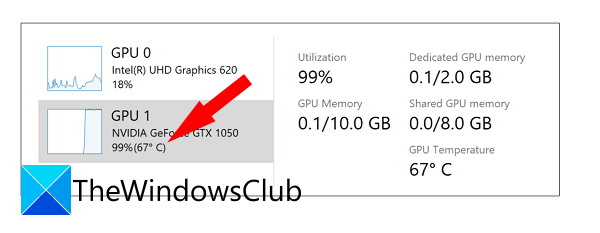
When the temperature of the CPU and GPU increases, fans automatically speed up. We suggest you monitor your CPU and GPU temperature. You can use free tools to monitor the CPU temperature and GPU temperature. Windows Task Manager also shows the GPU temperature.
If the temperature of your CPU or GPU goes high, you need to investigate further to find out which application or software is causing this issue. However, if you are playing games, it is normal for the GPU temperature to go high but it should be at safe levels. The safe temperature levels may be different for different brands of GPU.
Read: Computer power supply fan is not working or spinning on startup
2] Clean your PC
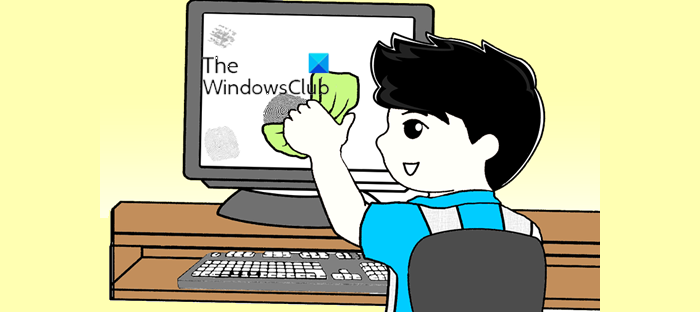
When was the last tie you cleaned your PC? Regular maintenance should be done if you want the best performance from your computer. With time, dust accumulates inside the PC case. Dust acts as an insulator and blocks heat exchange due to which the external temperature starts rising. We suggest you clean your PC.
We also suggest you check the thermal paste while cleaning your PC. If the thermal paste of your CPU is worn out, you need to replace it.
3] Monitor your CPU and disk usage
We also suggest you monitor your CPU and disk usage. Based on our experience, high CPU consumption also increases the CPU temperature due to which fans run fast. If you see CPU and disk spikes in the Task Manager, a program might be responsible for this. In addition to this, the 100% usage of CPU, disk, or memory can also cause this problem.
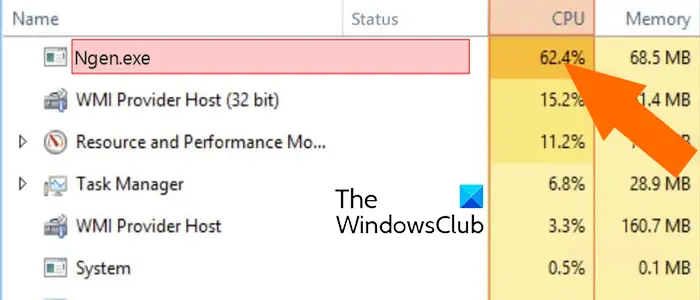
Open the Task Manager and select the Processes tab. If you see high CPU, disk, or memory usage, click on the respective (CPU, disk, or memory) tab. This will bring the program or service responsible for this to the top. Now, you can terminate that program or service. If you find a service responsible for high CPU usage, make sure that terminating that service won’t make your system unstable. In this case, you need to fix the issue instead of terminating that service. For example:
- If the Service Host SysMain is causing high CPU usage, your computer might have corrupted system image files or there might be a conflicting background application responsible for this.
- If the Search Indexer is causing high CPU usage, rebuilding the indexing files can help.
- The Cryptographic service shows high CPU usage, your system might be infected or there is an issue with your system image files.
4] Are all fans inside the PC case working properly?
Also, check if all the fans inside your PC case are working fine or not. If some fans are not working, fixing those fans can help.
5] Repair your system files
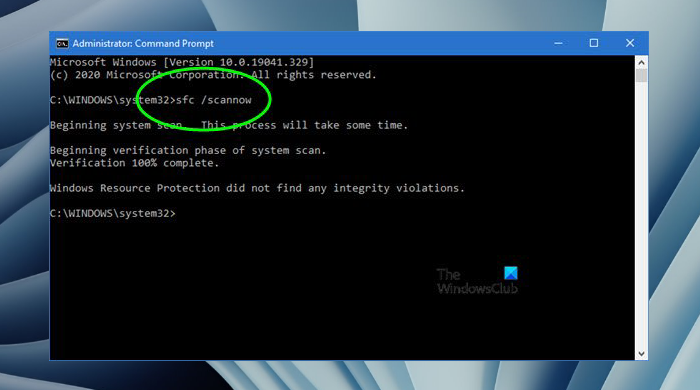
Corrupt system image files can cause several issues on a Windows computer. We suggest you run System File Checker and DISM tools to repair the corrupted system image files.
6] Update your BIOS and chipset drivers
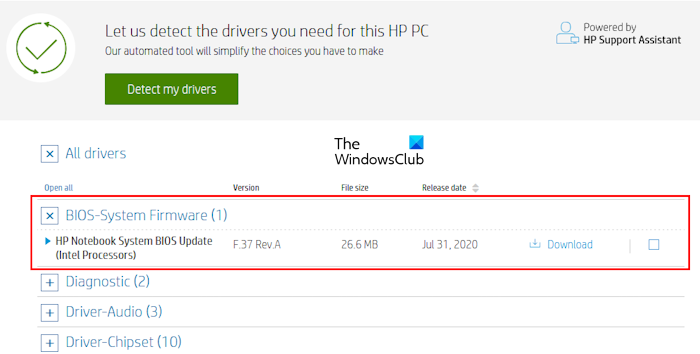
The speeding and slowing down of fans randomly might be associated with the BIOS. We suggest you check for BIOS updates. If an update is available, install it. You can use the dedicated software developed by your computer manufacturer or download the latest version from the official website. In addition to the BIOS update, we also suggest you update your chipset driver.
7] Have you installed Windows 11 on unsupported hardware?
When Microsoft released Windows 11, it also released the list of eligible CPUs. The PC Health Check is an official Microsoft tool that allows you to check if your system is compatible with Windows 11 or not. If a PC is not compatible with Windows 11, the tool displays a message regarding that. However, there are some ways by which a user can bypass these hardware requirements and install Windows 11 on unsupported hardware.

Hence, you can run Windows 11 on unsupported hardware but you should be ready to face its consequences. According to Microsoft, it can damage your PC due to a lack of compatibility. If you are running Windows 11 on unsupported hardware, it is better to switch to Windows 10.
One possible cause of this issue is the Insider Channels. Previously, there were only three Insider Channels. But in 2023, Microsoft released the Canary Channel. Interested users can switch to the Canary Channel but Microsoft has mentioned in the official documentation that the Canary Channel is the most unstable Channel and can cause several issues on a Windows PC. Therefore, if you have joined the Canary Channel, this can be one of the possible causes of the issue you are facing.
8] Hardware issue
The issue might be occurring due to a hardware fault. A faulty power supply can also cause this type of problem. However, a faulty power supply also shows other signs and symptoms. We suggest you take your system to a professional PC repair technician to address the cause of the issue and fix it.
9] Replace your cooler with a quality silent cooler
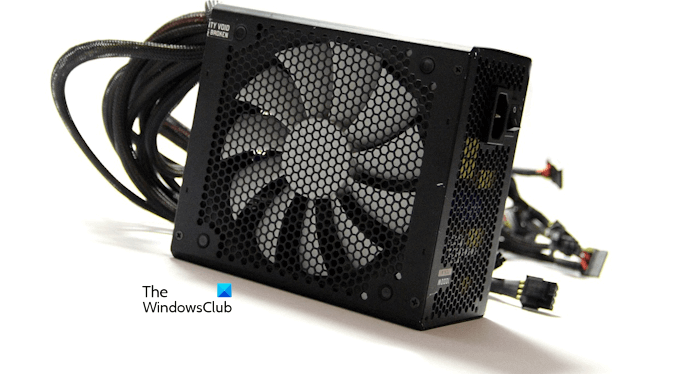
As explained earlier in this article, this is a normal function for computer fans. If you are not experiencing performance issues or other errors, like BSOD, you need not worry about it. But if the noise of PC fans causes trouble, you can replace them with quality silent PC fans.
That’s it. I hope this helps.
Read: What to do when your CPU Fan runs at full speed always?
How do I know if my PC fan is failing?
If your PC fan is failing, you will hear different types of sounds from it, like grinding noise, knocking noise, ticking noise, etc. In addition to this, it will not work effectively. Due to this, your computer temperature will rise and you will experience frequent crashes.
Read: How to control Fan Speed on Windows computers
Why do my fans randomly ramp up?
The most common cause of this problem is the rise in your CPU temperature. There might be a program or service eating most of your resources which is putting a burden on your CPU and its temperature is increasing. Moreover, dust buildup also causes this issue.
Read next: Computer light and fan stay on after shutdown.
Leave a Reply